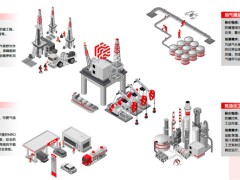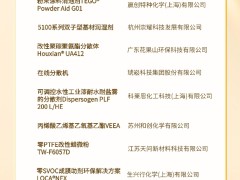据能源世界7月28日消息,美国炼油商将公布自新冠疫情以来的首个季度利润,尽管6月份油价上涨和利润率下降抑制了分析师因燃料需求反弹而产生的乐观情绪。
美国汽油和柴油燃料需求几乎已恢复到2019年的水平,此前在2020年疫情最严重时期,旅行和商业活动大幅下降。在活动复苏的背景下,炼油企业加大了加工力度,但同时也在努力应对原油价格上涨的问题。今年以来,原油价格已飙升48%。
美国三大独立炼油商瓦莱罗能源公司、菲利普斯 66 和马拉松石油公司——预计第二季度的合并净利润约为 6.75 亿美元。
这将低于30天前13亿美元的利润预测,分析人士担心,疫情的复苏将削弱经济需求。
Cowen and Co分析师Jason Gabelman表示,"市场担心第二季度可能是炼油商今年的盈利的峰值。"
美国原油在本季度上涨了近24%,尽管运输燃料的价格往往也随之上涨,但石脑油、沥青和丙烷等其他产品的价格往往滞后于上涨,挤压了利润率。
美国能源情报署(EIA)本月早些时候预测,2021年美国液体燃料消费量将比2020年每天增加150万桶。第二季度汽油产品供应反弹,达到疫情爆发以来的最高水平。
这让分析师对即将发布的报告感到乐观。据Refinitiv IBES的数据,全球三大炼油企业第一季度亏损了13亿美元。瓦莱罗将于周四公布财报,另外两家公司将于下周公布财报。
展望未来,高传染性新冠Delta变体的传播正在威胁刚刚开始复苏的旅行,美国本周表示,“在此时”不会取消任何现有的旅行限制。
Refinitiv Eikon的数据显示,炼油利润率从6月份开始下降,月末降至约19.11美元/桶,而第一季度末为20.42美元/桶。
分析师称,在第二季度,在汽油中混合乙醇也损害了利润率,因为这种以玉米为原料的燃料的价格较汽油出现了罕见的溢价。
炼油厂还不得不为美国可再生燃料信用支付更多费用,该季度可再生燃料信用达到创纪录的2美元。可再生识别号(RIN)的成本——用于遵守美国生物燃料混合法的信用额度——从第一季度末的1.32美元增加到6月底的1.54美元,增加了22美分。
根据法律规定,炼油厂必须将生物燃料混合到他们的汽油池中,否则就得支付更多的费用,以便其他炼油厂也能这样做。疫情普遍减少了综合利用效率,因此发放的信用额度减少,增加了他们的成本。
达美航空(Delta Airlines)位于宾夕法尼亚州特拉尼(Trainer)的炼油厂7月初在https://bit.ly/3eUmKyP上公布,第二季度营运亏损1.57亿美元,部分原因是在产品中混合生物燃料的成本上升。
裘寅 摘译自 能源世界
原文如下:
U.S. oil refiners set for first profit since onset of pandemic
U.S. oil refiners are set to post their first quarterly profit since the COVID-19 pandemic, even though higher oil prices and weaker margins in June have tamed analysts' optimism fostered by the rebound in fuel demand.
U.S. gasoline and diesel fuel demand has nearly recovered to 2019 levels following the plunge in travel and business activity during the worst of the coronavirus pandemic in 2020. Refiners ramped up processing on the back of the resurgence in activity, but are also grappling with higher crude oil prices, which have surged 48 per cent this year.
The top three U.S. independent refiners - Valero Energy Corp , Phillips 66 and Marathon Petroleum Corp - are projected to report combined net income of about $675 million in the second quarter.
That would be down from $1.3 billion in profit forecast just 30 days ago, and analysts are concerned that the resurgence in coronavirus cases will undermine economic demand.
"There is a fear that second quarter could be peak earnings for the group this year," said Cowen and Co analyst Jason Gabelman.
U.S. crude has rallied nearly 24 per cent in the quarter, and while prices of transportation fuels tend to pick up in tandem, prices of other products like naphtha, asphalt and propane tend to lag the increase, squeezing margins.
The U.S. Energy Information Administration earlier this month forecast U.S. liquid fuels consumption in 2021 to rise by 1.5 million barrels per day from 2020. Gasoline product supplied rebounded in the second quarter to levels not seen since prior to the pandemic's beginning.
That has analysts optimistic about coming reports, after the top three refiners lost $1.3 billion in the first quarter, according to Refinitiv IBES data. Valero reports its earnings on Thursday, followed by the other two next week.
Going forward, the spread of the highly transmissible COVID-19 Delta variant is threatening the nascent recovery in travel, with the United States saying this week that it will not lift any existing travel restrictions "at this point."
Refining margins started to decline in June, falling to about $19.11 per barrel at the end of the month, compared with $20.42 at the end of the first quarter, Refinitiv Eikon data showed.
In the second quarter, blending ethanol into gasoline also hurt margins as price for the corn-based fuel was at a rare premium to gasoline, analysts said.
Refiners also had to pay more for U.S. renewable fuel credits, which touched a record $2 in the quarter. The cost for Renewable Identification Numbers (RINs) - the credits used for compliance with U.S. biofuels blending laws - increased by 22 cents each to $1.54 at the end of June from $1.32 at the end of the first quarter.
Refiners are required, by law, to blend biofuels into their gasoline pool, or pay up so others can do the same. The pandemic has reduced blending activity generally, and as a result, fewer credits have been issued, increasing their costs.
Delta Airlines' refinery in Trainer, Pennsylvania, in early July posted https://bit.ly/3eUmKyP a $157 million operating loss in the second quarter, in part due to the higher costs associated with blending biofuels into its products.
免责声明:本网转载自其它媒体的文章,目的在于弘扬石化精神,传递更多石化信息,并不代表本网赞同其观点和对其真实性负责,在此我们谨向原作者和原媒体致以敬意。如果您认为本站文章侵犯了您的版权,请与我们联系,我们将第一时间删除。







